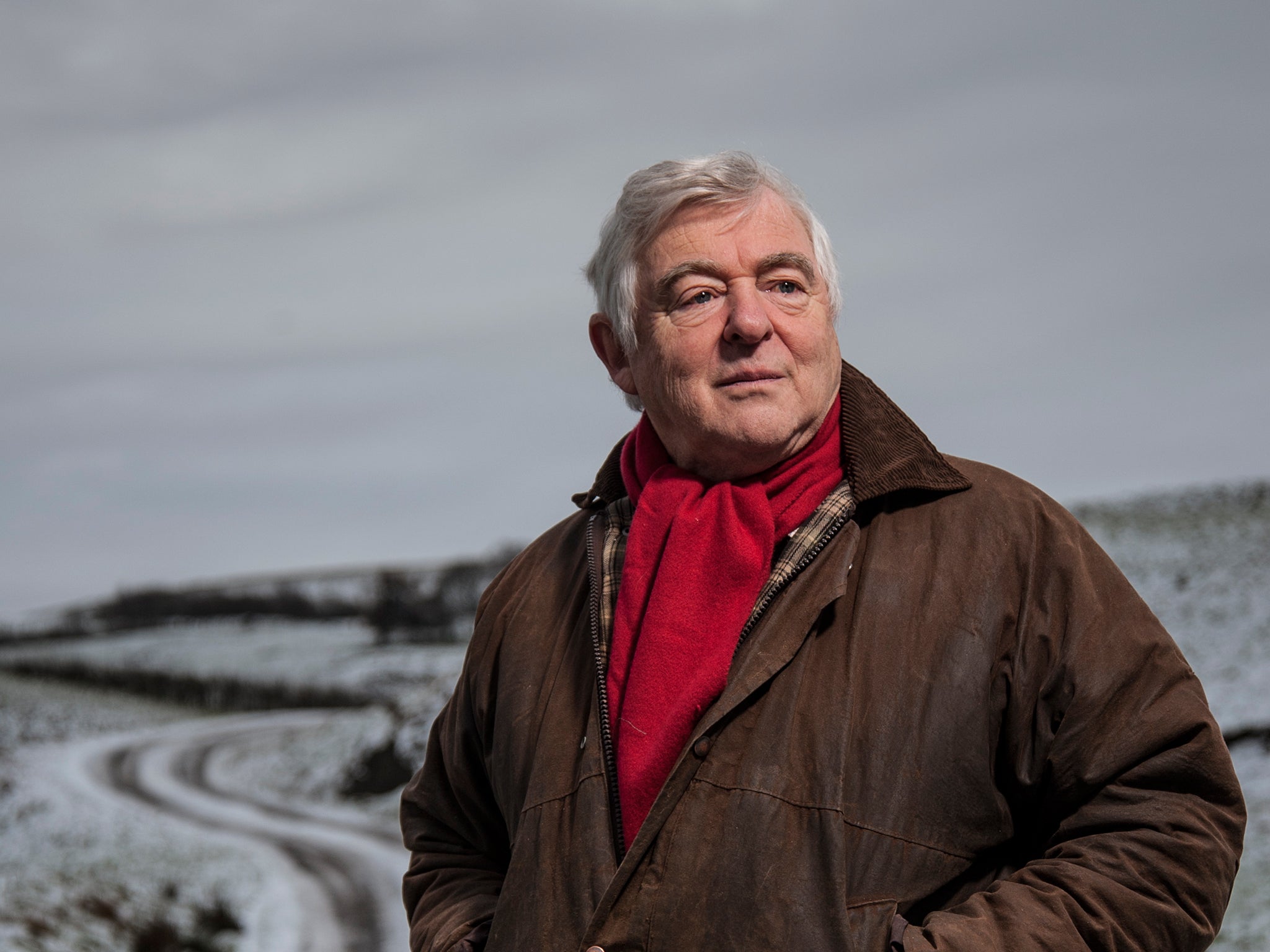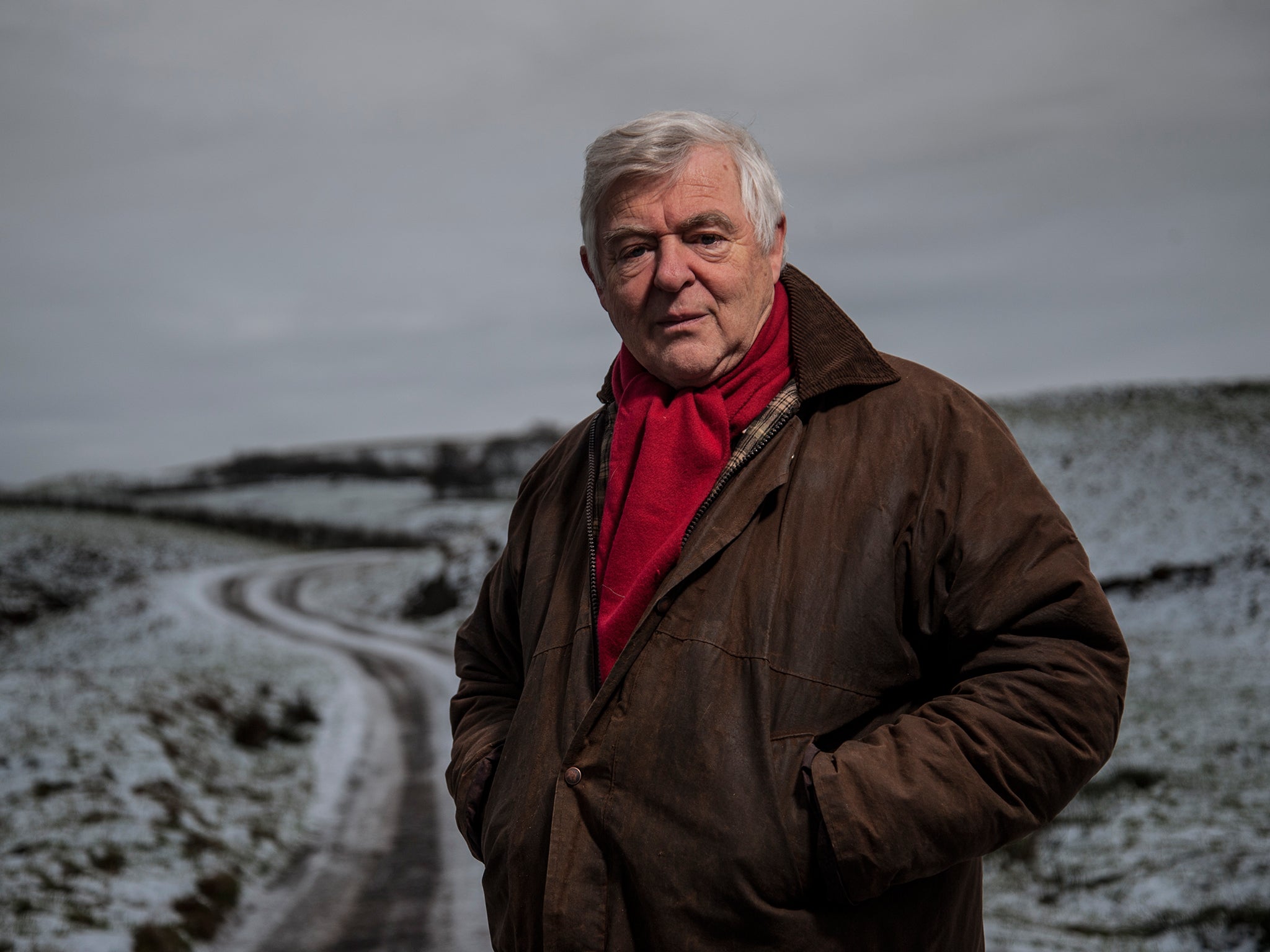How donating a kidney to a stranger inspired John Fletcher to launch a groundbreaking campaign
'Almost all of us have two kidneys and only need one, so are in a position to give the gift of life quite easily'

“Truthfully, I don’t know how the idea came to me that I wanted to donate my kidney to a stranger, but there’s no doubt it’s one of the most satisfying things I’ve ever done,” says John Fletcher, a 69-year-old vet from Fife, Scotland. “In fact, after I had recovered from the operation, I received a letter from the recipient – they are encouraged to write to the donor – via the hospital. The woman told me how it had enabled her to be a mother again to her five children. You can imagine how gratifying that was to hear.”
This year, it’s 10 years since “altruistic” (a word John winces at because he feels the sense of fulfilment it provides means it’s anything but) kidney donation became legal and to mark it, he is leading a campaign to make Scotland the first country in the world where nobody need die waiting for a kidney.
He knows it won’t be an easy ride. “When I first spoke to my GP about wanting to donate a kidney, he looked at me as if I was mad,” laughs John. “Some of my family were less than impressed, too, while the general reaction from others has been that there must be something a bit weird about me. It’s infuriating because almost all of us have two kidneys and only need one, which means the vast majority of us – even the elderly – are in a position to give the gift of life really quite easily.”
Thankfully, attitudes are changing, with more than 436 people in the UK now having donated a kidney to someone they didn’t know. “But still,” John says, “almost one person a day dies in Britain – more than 350 per year – waiting for a kidney and more than 5,500 people are living on dialysis, waiting for one. This is an experience so miserable that many describe it as a living hell and what’s more, dialysis costs a fortune – £290,000 per patient over 10 years – whereas a kidney donation and insertion only costs £25,000. This means each of us could save the NHS more than £200,000 a year.”
While the transplant centres within the NHS are eager to encourage the practice, they aren’t permitted to promote it, for ethical reasons – a situation that John claims leaves donors themselves in the best position to campaign. That said, even he admits that it’s too daunting a thought to take on the whole of Britain (which, anyway, has its own donor-led campaign Give a Kidney), so instead he’s focusing on Scotland, where he and a group of others hope to locate and sign up more than 100 potential donors – sufficient, they believe to end waiting times for kidney transplants in Scotland. “The good news is that all our meetings with health professionals suggest this is a realistic ambition – that we really could do this.”
As with all altruistic kidney donors, John’s own journey kicked off with a succession of tests to assess his suitability, followed by ECGs, ultrasounds, a radioactive tracer, a full body scan and some urine and blood tests. “It sounds a lot, but actually it’s only a brief and friendly appointment once in a while,” he says, adding that he was also asked to lose a bit of weight and subsequently “amazed my wife” by actually dieting for once.
The final hurdle was being vetted (both alone and with his wife) by a psychiatrist, to determine John’s mental state. “It was him who made me think more deeply about my motives. I started to wonder if perhaps part of it was to do with a terrible accident we had on our farm about 10 years previously, in which a young worker was electrocuted. Despite all my efforts with mouth-to-mouth, he died. Then there was my cousin who, about 40 or 50 years previously, had died after years on dialysis. Like most people awaiting kidney transplants, he was young and it felt such a wasted life.”
John wonders if it might also be significant that for medical reasons, he’s never been able to give blood, nor has he had lots of spare money to throw at charities. “Above all, though, I think it was the ease with which you can make a real difference. If I saw someone drowning in a pond, I would jump in, yet that would be far more risky than giving a kidney away. The fact that I’m a vet is probably relevant, too – it makes it much simpler for me to understand how easy it is to survive with one kidney, as well as how healthy, living-donor kidneys really are the ‘Rolls-Royce’ of kidney transplants.”
When, after 18 months, he finally received the letter to say he’d passed his tests and was eligible to donate a kidney, John felt elated. “My wife was wonderfully supportive and could see that, as I’ve since found with other donors, there was almost an instinctive drive within me. One woman who was really quite overweight became so determined to go ahead with donating her kidney that she lost stones and is now euphoric that the operation is going ahead.”

John’s two daughters were also encouraging. “One is a scientist and her interest seemed to be in the technology involved in the surgery. The other one, who is an arts graduate, was initially angry, although it didn’t last. I suppose she thought I was being selfish, which was probably true. I think she also felt I was taking yet another unnecessary risk. As a vet specialising in deer, I have taken more risks than many. But after the event, they were both very proud.”
In 2009, a month or two after receiving his letter, John was told doctors had found a suitable match for his tissue type and he was admitted to hospital for the surgery which, unusually, wasn’t keyhole due to a slight complication relating to his blood vessels. “I didn’t mind having a scar, so open surgery was no odds to me,” he says. Two or three days later, he was sent home and although there was some mild discomfort and a ban on driving for a couple of weeks, he felt back to normal after just a few weeks.
While a small minority of people report post-partum blues afterwards, John says he felt nothing but an inner glow, and research shows that 80-97 per cent of altruistic kidney donors say they would have made the same decision with the benefit of hindsight. As for the health risks, a very small number of people experience pain, infection or bleeding – while the risk of dying is very low at one in 3,000. For the vast majority, there is absolutely no change in their life post-op – their lifestyle and diet are just as they were before.
Initially, John wanted to keep what he’d done a secret. “But after a while, I thought, why should I? There is a proud tradition in Britain of giving blood and if only people had on their radar the possibility of donating a kidney, they might want to do that, too, especially as it’s something you can do even in your eighties to help, mostly, people in their twenties or thirties. I very quickly discovered, however, that people often think you’re crazy if you say you’ve done it. They shy away from you. When I asked a Rotary club, whom I’ve been giving talks to on deer farming for years, if I could talk about kidney donation, I had absolutely no response at all. That just made me more determined, though, and we have made headway now, as well as organising many more talks to other groups.”
The more it’s talked about, the more it will become an accepted procedure, hopes John, who is also in talks with transplant centres and the Scottish Government as part of the campaign. “It’s not that we think any laws need changing. We just want to see them flex their muscles to create a bit more flexibility around promoting it.”
John does not consider himself a hero. “The real heroes are those waiting on dialysis,” he insists. “It’s an awful existence, with such huge dietary constraints that you can’t even eat a potato. Yet within minutes of a kidney transplant, you see the colour flood back into their cheeks.” µ
Join our commenting forum
Join thought-provoking conversations, follow other Independent readers and see their replies
Comments
Bookmark popover
Removed from bookmarks